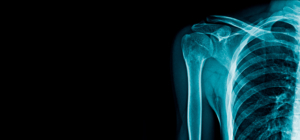
In the world of kidney disease, Vitamins B3 and K are often overlooked, but these two nutrients may be useful in the fight against Chronic Kidney Disease Mineral Bone Disorders (CKD-MBD).
Niacinamide, a form of Vitamin B3, has phosphorous binding abilities that benefit patients with CKD and ESRD. Researched in doses of 25mg-1500mg per day, niacinamide has shown to reduce phosphorous with or without the addition of traditional phosphate binders.
Although commonly prescribed renal multivitamin contains 20mg of niacinamide, research indicates that higher amounts of niacinamide would be required to help bind phosphorous. A sweet spot may be 35mg per day, this is a low enough dose to prevent minor side effects while still within parameters of the research for the purposes of phosphorous binding.
As with any supplement, there are some things to consider when prescribing niacinamide. Patients with diabetes may experience increased blood sugar while some patients on dialysis may have increased risk of low blood platelet levels. Therefore, it is important to talk with all patients about specifics regarding supplement use during their counseling sessions.
Vitamin K is another nutrient with promise. Normally thought of for its role in blood clotting, Vitamin K is crucial in protecting against soft tissue calcification. In the presence of Vitamin K deficiency, vitamin K2 dependent proteins that protect against soft tissue calcification both locally and systemically become inactive, which is common is CKD and ESRD patients. For this reason, researchers have turned to Vitamin K2 supplements.
Various doses have been studied ranging from 45mcg up to 45mg per day. What we have learned so far is that Vitamin K2 supplements appear to be generally safe provided safe doses are not exceeded. Supplements also appear to resolve vitamin K deficiency. Unfortunately, while insufficient levels can be corrected by supplementation, studies have not shown an improvement in biomarkers used to test for the development and progression of soft tissue calcification.
People living with chronic diseases like CKD and end-stage renal disease (ESRD) often seek out over the counter solutions to reduce symptoms, manage their disease, and/or cut costs by avoiding prescription medications.
As clinicians, talking to patients about supplement use and providing evidence-based guidance is important to help patients choose their supplements wisely and navigate any potential side effects or interactions.
A good rule to follow when choosing any supplement is to evaluate them on a case-by-case basis using the following criteria:
- Look for an appropriate dosage and clear labeling. Some supplements offer unnecessarily high doses and additional ingredients.
- Assess the supplement for contraindications in kidney disease or drug interactions with the patient’s medications.
- Determine if it’s been identified as generally recognized as safe (GRAS) by the FDA
- Check for third-party testing from companies like Consumer Labs or United States Pharmacopeia (USP). This additional step ensures the product contains what it claims to contain, is not contaminated, and is produced under good manufacturing practices.
For more tips on selecting the right supplement or to learn more about CKD-MBD, check out the following resources:
